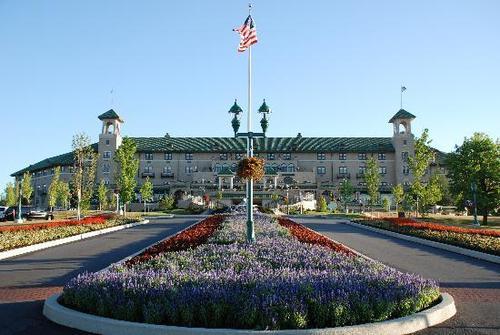Man or Machine?
Wayne Muller in his book Sabbath tells a story about Harvard President Neil Rudenstine oversleeping one morning in November of 1994. For this zealous perfectionist, in the midst of a million-dollar-a-day fund raising campaign, it was cause for alarm. After years of intensive, nonstop toil and struggle in an atmosphere that rewarded frantic busyness and overwork, and having been assaulted by a hail of never-finished tasks, President Rudenstine collapsed. “My sense was that I was exhausted,” Rudenstine told reporters. His doctor agreed. Only after a three month sabbatical, during which he read Lewis Thomas, listened to Ravel, and walked with his wife on a Caribbean beach, was Rudenstine able to return to his post. That week, his picture was on the cover of Newsweek magazine beside the one word banner headline: “Exhausted!”
Can man operate like a machine?
I remember my grandfather telling a story about his employer Milton S. Hershey. Hershey was the founder and leader of the Hershey Chocolate Factory around the turn of the century. During that time Hershey also built a school for orphaned children, a park, rose gardens, ballroom, community center and a golf course for any employee from his chocolate factory to use free of charge. The idea was to have a balanced life. Work hard, enjoy your family and rest well. For Hershey, stability didn’t come through sucking more profit out of his people but rather providing balance. During the 1930’s at the height of the great depression, Hershey decided to build the world renown Hershey Hotel. His purpose was solely to provide jobs, not make more money. My grandfather was pulled from the chocolate factory due to work being slow to help build the Hotel. One day while constructing the new hotel, the sight manager had a new machine brought to the job site. It was a steam shovel. While the steam shovel began to to dig the manager proclaimed that this new machine could do the work of 100 men. About mid day, Milton S. Hershey arrived at the construction site to oversee the progress which had been made. Not long after arriving the site manager showed Milton the steam shovel and proclaimed it could do the work of 100 men. Milton stopped the manager in his tracks and said, “Then get rid of the steam shovel and hire 100 more men.”

What is the value of a human being?
This past week while reading Consuming Religion by Vincent J. Miller I was struck by the concept of how hyper consumerism societies cause an unstoppable commodification of culture. Subtly, we begin to look at all which has been created as commodities. In its extreme, the value and worth of fellow humans is diminished. In so doing we begin to treat people as commodities or as simple machines. Empty, soulless, hollow commodities for our own purposes. In the commodification of people we subtly begin to treat them like machines. However, humans are not machines. We are limited, not infinite. Milton Hershey understood the value, worth of person. Hire more, work them less, give them rest, provide a living and care for their entire being. They are not expendable.
What Commodification Exists in our Churches?
Our Language… What type of language do we use in the church? Invest and Invite! Multiply! Exponential! To often our language models a commodification understanding of church and humanity. We talk about people as dehumanized objects in which play roles in our great game. Financial, capitalistic and self gain language is often used at the expense of the very person you were called to help form their soul. In commodification language the forming of one’s soul is foreign and even seems ridiculous, due to the lack of capitalistic gain.
Our Leaders… Do we see leaders as commodities or souls which have been entrusted to you by God to care for. Why do we spend time with our leaders? Simply to gain a return or because we love them the way God loves them? Leaders are gifts entrusted to you by God, not another tool to treat like a machine in accomplishing your great vision. Do you know your leaders? Do you sit and simply be present with them? Do you hurt with them, or have you devalued them as commodities? Remember, a commodity is simply used, when finished we get another.
Our Discipleship… Critically evaluating discipleship evaluates health based off the question, “Is a disciple displaying the character and priorities of Jesus?” How is it that we have commodified discipleship to a point where we evaluate health based on production? A disciple must be active! In a loss of rhythms and pace of life, we have forgot about the first portion of Mark 12, simply being present with God. Do we provide room in our church programing for people to be present? Do we care for their souls in the mess? Do we trust God enough with our finances to not force a production model to grow our church numerically.

Our we treating our people like human beings or machines?
Have we commodified them?
Are they exhausted?
Are you a man or a machine?
Human beings enjoy the simplicity of life. Work as well as rest. We were not made to operate like machines. Machines, operate like technology. Never turning off, meeting every need, never taking a break.
Which will you be? How will you lead?
Leave a Reply
You must be logged in to post a comment.